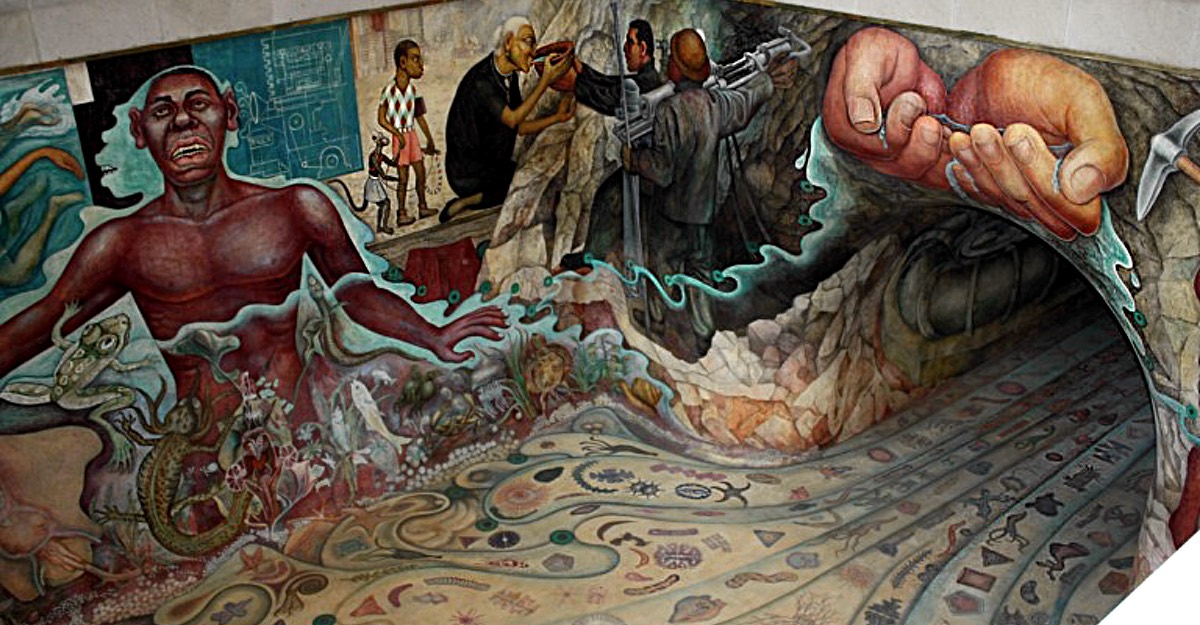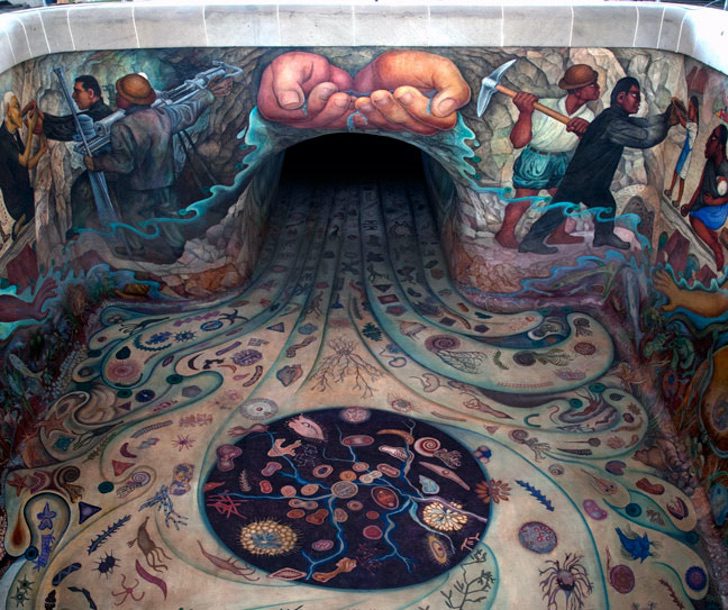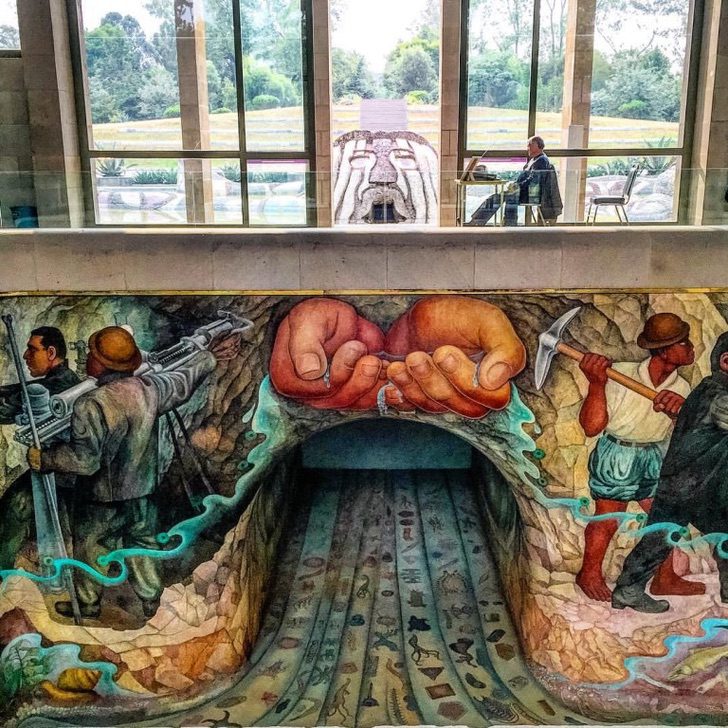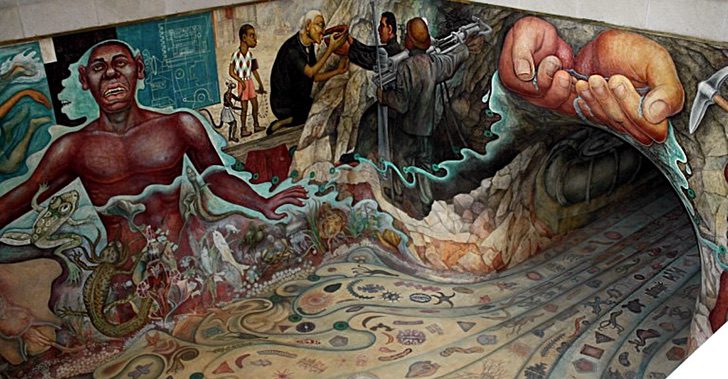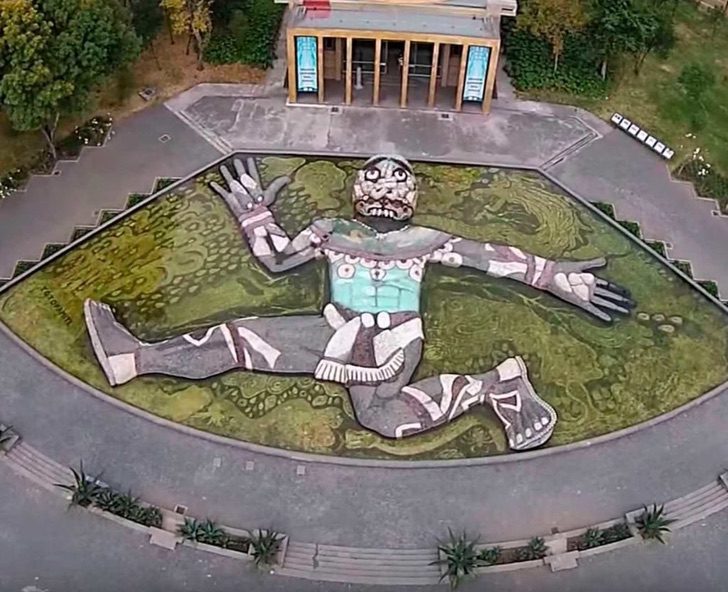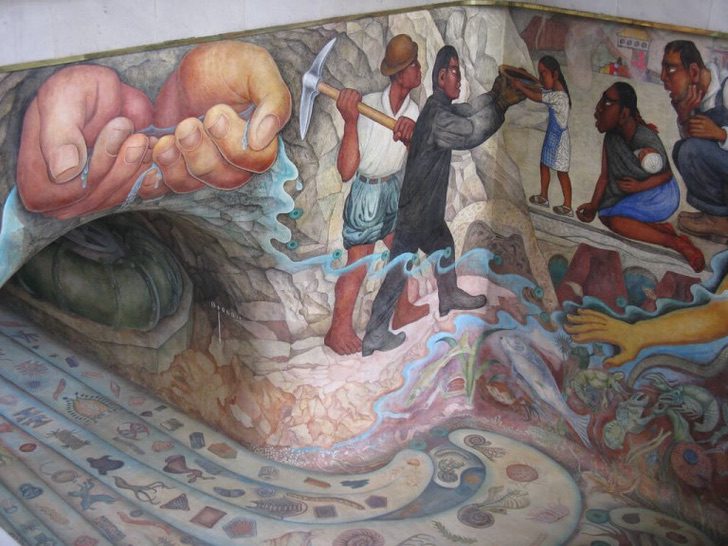We’re talking about an underwater mural by the artist Diego Rivera, called «Water, origin of life».
Located in the second section of the Chapultepec Forest, this work of art was created for the inauguration of the Cárcamo de Chapultepec in 1951 to celebrate the end of an important project that would bring drinking water to Mexico City.
It was 42 years until the National Center for the Arts decided to divert the course of the water to show this artwork. They were truly surprised to find its beauty intact.
The history of this structure and the mural are linked to Mexico City’s hydraulic system. It took more than ten years and millions of pesos to build with the objective of bringing Uncle Lerma’s water to the city.
When they finished the work, as a celebration, Diego Rivera, the famous Mexican artist, gave the artwork a different touch, an artistic touch, a touch of magic.
Together with Ricardo Rivas and Ariel Guzik, the building designers as well as his colleague, they created a true work of art, both in and outside the tunnels and its internal spaces.

Exterior Cárcamo Unknown author. Help us find them
The name of the great structural project is «Water, origin of life». This phrase makes sense several decades after its construction, considering that today it’s an increasingly scarce good. In fact, many countries already suffer from water scarcity while others struggle to recover water rights for their population.
Without a doubt, it was a visionary work of art.
It’s a genius creation. The four faces of the inner tank, where the mural is, were painted in such a way that, no matter from which angle one looks at it, one can understand its meaning. Together, they make a set without a beginning or end.
At the bottom of the artwork, on the ground, Rivera painted microorganisms. He understood that water would cover up his work for several years, so he drew stylized, concrete forms above it, as if they were evolving.

